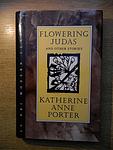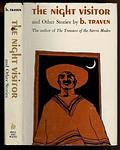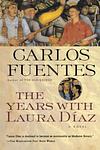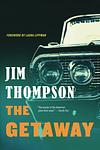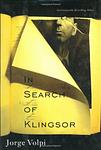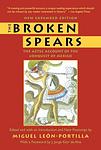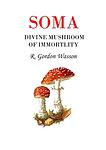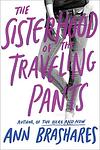The Greatest "Mexico" Books of All Time
Click to learn how this list is calculated.
This list represents a comprehensive and trusted collection of the greatest books. Developed through a specialized algorithm, it brings together 300 'best of' book lists to form a definitive guide to the world's most acclaimed books. For those interested in how these books are chosen, additional details can be found on the rankings page.
Genres
The "Mexico" category for books would encompass literature that explores the history, culture, and society of Mexico. This could include works of fiction, non-fiction, and memoirs that delve into the country's rich traditions, political struggles, and diverse communities. From the ancient civilizations of the Aztecs and Mayans to the modern-day challenges facing Mexico, this category would offer readers a glimpse into the complexities and beauty of this vibrant country.
Countries
Date Range
Reading Statistics
Click the button below to see how many of these books you've read!
Download
If you're interested in downloading this list as a CSV file for use in a spreadsheet application, you can easily do so by clicking the button below. Please note that to ensure a manageable file size and faster download, the CSV will include details for only the first 500 books.
Download-
26. The True History of the Conquest of New Spain by Bernal Díaz del Castillo
This book provides a first-hand account of the conquest of Mexico by the Spanish during the 16th century. It offers a detailed narrative of the events, battles, and interactions with native tribes, including the Aztecs. The author, a soldier in the Spanish army, provides a unique perspective on Hernán Cortés and his tactics, the politics of the time, and the cultural and religious practices of the indigenous people. The book also highlights the hardships, challenges, and ethical dilemmas faced by the conquistadors.
-
27. Flowering Judas and Other Stories by Katherine Anne Porter
"Flowering Judas and Other Stories" is a compilation of short stories that explore complex themes of love, betrayal, and death, often through the lens of the author's own experiences and observations. The stories are set in various locations including Texas, Mexico, and Berlin, and feature a range of characters, each grappling with their own personal struggles and moral dilemmas. The titular story, "Flowering Judas", revolves around a young woman's involvement with a Mexican revolutionary group and her struggle with guilt and disillusionment.
-
28. Terra Nostra by Carlos Fuentes
This sprawling, complex novel is a rich tapestry of historical, philosophical, and literary references that explores the identity and culture of Latin America through a fantastical lens. Set primarily in 16th-century Spain during the reign of Philip II, the narrative weaves together the lives of historical figures and fictional characters, blending reality with myth and time travel. The story delves into themes of creation and destruction, the cyclical nature of history, and the quest for a utopian society, all while examining the consequences of colonialism and the search for a Latin American identity that reconciles its indigenous, African, and European heritage. The novel's intricate structure and dense prose challenge the reader to consider the past's impact on the present and future of a region with a tumultuous history.
-
29. Night Visitor by B Traven
"Night Visitor" is a suspenseful tale that delves into the psychological and physical journey of a protagonist who is haunted by a mysterious nocturnal presence. Set against a backdrop that is both ordinary and eerie, the narrative explores themes of isolation, fear, and the unknown as the central character grapples with the increasingly intense visits that challenge their grip on reality. As the story unfolds, the line between hallucination and actuality blurs, leading to a climactic confrontation that forces a confrontation with both inner demons and external threats.
-
30. The Night Visitor by B Traven
"The Night Visitor" is a gripping tale that delves into the complexities of human nature and the unforeseen consequences of our actions. Set against a backdrop of political and social turmoil, the story follows an enigmatic stranger who arrives in a small town, bringing with him a series of mysterious events that challenge the moral compass of the townspeople. As the narrative unfolds, the visitor's true intentions and the dark secrets of the community are slowly revealed, leading to a dramatic and thought-provoking conclusion that questions the very essence of guilt, redemption, and justice.
-
31. The Nine Guardians by Rosario Castellanos
"The Nine Guardians" is a poignant novel set in the 1930s in Chiapas, Mexico, during the time of agrarian reforms under President Lázaro Cárdenas. Narrated from the perspective of a young girl from a landowning family, the story explores the profound social and cultural upheavals faced by both the indigenous people and the ruling class as land is redistributed. Through her eyes, readers experience the clash of cultures and the violent struggles over land rights, witnessing the impact of political change on personal and familial relationships. The novel delves deeply into themes of power, race, and identity, providing a rich, emotional, and historically grounded narrative.
-
32. The Years with Laura Diaz by Carlos Fuentes
"The Years with Laura Diaz" is a historical novel that centers around the life of a woman named Laura Diaz, a member of the Mexican upper class. The book explores the political and social changes in Mexico throughout the 20th century, as seen through Laura's eyes. Her journey includes a loveless marriage, a passionate affair, and a career as a photographer during the Mexican Revolution. The story weaves together personal, political, and cultural threads, creating a rich tapestry of Mexican history and the indomitable spirit of its women.
-
33. The Pearl by John Steinbeck
A poor pearl diver's life is turned upside down when he discovers a giant, magnificent pearl. Initially seen as a blessing, it quickly becomes a curse as the man and his family are consumed by greed and paranoia. Despite their dreams of a better life, the pearl brings them nothing but misfortune and tragedy, leading them to question the true value of wealth and the destructive power it can hold.
-
34. The Crossing by Cormac McCarthy
"The Crossing" is a novel set in the late 1930s and early 1940s that follows a young man named Billy Parham and his brother Boyd. The story primarily revolves around their adventures in the United States and Mexico, including their encounters with a wolf, horse traders, and a Mexican outlaw. The narrative explores themes of loss, survival, and the harsh realities of life, set against the backdrop of the American West and the Mexican wilderness.
-
35. City Of Kings by Rosario Castellanos
"City of Kings" is a poignant exploration of the cultural and social dynamics in a Latin American town, where the indigenous and colonial legacies collide. The narrative delves into the lives of the town's inhabitants, both the oppressed indigenous people and the ruling Spanish descendants, revealing the complexities of power, race, and identity. Through a series of interwoven stories, the novel paints a vivid picture of a society grappling with the remnants of colonialism and the struggle for modernity, exposing the deep-rooted injustices and the characters' quest for dignity and redemption amidst a changing world.
-
36. False Years by Josefina Vicens
"False Years" is a thought-provoking exploration of identity and the passage of time, following the life of a man who grapples with the authenticity of his existence. As he reflects on his past, he questions the decisions he has made and the roles he has played, which seem to him now as mere falsehoods. The narrative delves into the themes of existential angst and the search for self, as the protagonist confronts the dissonance between his inner self and the person he presents to the world. The book challenges readers to consider the masks they wear and the truths they live, making it a poignant study of the human condition.
-
37. My Life by Leon Trotsky
This autobiography provides a detailed account of the life of a prominent Russian revolutionary and Marxist theorist. The book traces his early life, education, and political development, his role in the Russian Revolution and Civil War, his leadership of the Red Army, and his expulsion from the Communist Party and subsequent exile. It offers a unique perspective on key events in 20th-century history and an insight into the author's complex personality and intellectual development.
-
38. The Getaway by Jim Thompson
This novel plunges readers into the dark world of Doc McCoy and his wife, Carol, as they navigate the treacherous aftermath of a bank robbery gone awry. With the law on their heels and their criminal associates proving to be as dangerous as the authorities, the couple's desperate bid for freedom and a new life leads them down a path fraught with betrayal, violence, and moral ambiguity. Set against a backdrop of mid-20th-century America, their journey is a relentless exploration of greed, love, and the lengths to which people will go to escape their past.
-
39. Frida: A Biography Of Frida Kahlo by Hayden Herrera
This biography delves into the tumultuous and vibrant life of a renowned Mexican painter known for her captivating self-portraits and works inspired by nature and artifacts of her country. It explores her complex relationship with her muralist husband, her struggles with chronic pain and health issues stemming from a tragic accident, and her passionate political activism. The book paints a vivid picture of her artistic triumphs and personal tribulations, offering an intimate look at her unique spirit and the cultural and political influences that shaped both her life and her art.
-
40. Infortunios De Alonso Ramirez / The Misfortunes Of Alonso Ramirez by José F. Buscaglia-Salgado, Carlos de Siguenza y Gongora
The book chronicles the harrowing adventures of Alonso Ramírez, a Puerto Rican man who, after being forced into piracy, endures a series of calamitous events at sea and across various lands. Captured by pirates, he survives shipwrecks, enslavement, and numerous hardships before eventually making his way back to Spanish territory. His story, which is presented as a true account, blurs the lines between fact and fiction, offering a unique perspective on colonial life, maritime culture, and the struggles of individuals caught between different worlds during the late 17th century.
-
41. The Mixquiahuala Letters by Ana Castillo
"The Mixquiahuala Letters" is a poignant exploration of the complex friendship between two women, Teresa and Alicia, as they navigate the cultural and emotional landscapes of their lives. Through a series of letters, the novel delves into themes of identity, feminism, and self-discovery, set against the backdrop of their travels in Mexico. The epistolary format reveals the intimate thoughts and evolving perspectives of the characters, offering a candid look at the challenges they face in their quest for independence and authenticity. The narrative structure invites readers to piece together the story in non-linear fashion, reflecting the fluidity of memory and experience.
-
42. In Search of Klingsor by Jorge Volpi Escalante
"In Search of Klingsor" is a historical novel that revolves around the pursuit of a mysterious Nazi scientist named Klingsor. The story is set during World War II and the Cold War, and follows two main characters, an American physicist and a Mexican mathematician, who are tasked with finding and identifying Klingsor. The novel uses real historical figures and events to explore themes of science, war, and morality, while also delving into the complex nature of truth and deception.
-
43. The Dog Of The South by Charles Portis
This novel follows the journey of Ray Midge as he embarks on a quest to retrieve his stolen Ford Torino and his runaway wife, Norma, who has fled with her first husband, Guy Dupree. Midge's pursuit leads him from Little Rock, Arkansas, down into Mexico and Central America, encountering a cast of eccentric characters along the way, including a dubious doctor, a philosophical mechanic, and a civil war enthusiast. Through a blend of humor and adventure, the narrative delves into themes of obsession, redemption, and the search for identity amidst the chaos of the 1970s American South and the vibrant, yet tumultuous landscapes of Central America.
-
44. Cantora by Sylvia Lopez-Medina
"Cantora" is a poignant coming-of-age novel that follows the life of a young Chicana girl growing up in the 1960s and 1970s in a California border town. As she navigates the complexities of her bicultural identity, she is also confronted with the challenges of family dynamics, love, and loss. The protagonist's journey is marked by her passion for music, which becomes both a source of solace and a means of self-expression. Through her experiences, the novel explores themes of cultural heritage, personal growth, and the pursuit of one's dreams against the backdrop of social and political change.
-
45. The Broken Spears by Miguel Leon-Portilla
"The Broken Spears" presents a poignant account of the Spanish conquest of the Aztec Empire from the perspective of the indigenous people. Through a compilation of Nahuatl texts, the book offers a narrative that contrasts sharply with the traditional European-centered histories. It highlights the devastating effects of Spanish conquest on the Aztec civilization, including the significant cultural and human losses suffered due to violence and disease. The work provides a voice to the Aztec people, showcasing their courage, complexities of their society, and the tragic impact of colonialism.
-
46. Against the Day by Thomas Pynchon
The novel is a sprawling epic that spans the period from the 1893 World's Fair to the years following World War I. It follows the stories of several characters including the anarchist Traverse family, a group of balloonists, a detective, and a mathematician. The book explores themes of anarchism, capitalism, and technology, and incorporates elements of science fiction, adventure, and historical fiction. It is noted for its complex structure and dense, multifaceted narrative.
-
47. Enrique's Journey by Sonia Nazario
"Enrique's Journey" is a poignant narrative about a young Honduran boy who embarks on a perilous journey through Central America and Mexico to reach his mother in the United States. The story, based on a Pulitzer Prize-winning newspaper series, explores the harsh realities faced by immigrants, the devastating impact of family separations, and the unyielding determination of a child in search of his mother. It offers a deeply personal and eye-opening perspective on the challenges and perils faced by undocumented immigrants.
-
48. Soma by Gordon Wasson
"Soma" explores the intriguing hypothesis that the mysterious ritual drink called 'soma,' referenced in ancient Indian Vedic texts, was derived from a psychoactive mushroom. The book delves into linguistic, cultural, and ethnobotanical studies to support this theory, suggesting that the Amanita muscaria mushroom is the most likely candidate for the original soma. Through a detailed examination of the Rigveda, the author argues that soma played a central role in early Indo-Iranian religions, influencing spiritual practices and experiences. The work combines historical analysis with the study of religious rituals to shed light on how psychoactive substances have shaped human culture and spirituality.
-
49. The Teachings Of Don Juan by Carlos Castaneda
The book is a captivating narrative that explores the author's experiences as an anthropology student under the tutelage of a Yaqui Indian sorcerer. Through a series of extraordinary encounters and the use of powerful psychotropic plants, the protagonist is guided on a spiritual journey to discover an alternative perception of reality. The work delves into the complexities of shamanism and the indigenous knowledge of the Sonoran Desert, challenging conventional understandings of consciousness and reality, and offering insights into a mystical tradition deeply rooted in Native American culture.
-
50. The Sisterhood Of The Traveling Pants by Ann Brashares
The book follows four best friends—Lena, Tibby, Bridget, and Carmen—who discover a pair of jeans that miraculously fits each of them despite their different body types. Dubbed the Traveling Pants, the jeans become a symbol of their friendship and a way to stay connected as they spend their first summer apart. As the pants circulate among the girls, they experience a series of personal growth and life-changing experiences, from first loves to family conflicts. The story is a heartwarming exploration of the bonds of friendship, the pains of growing up, and the belief that a bit of magic can appear in the most unexpected places.
Reading Statistics
Click the button below to see how many of these books you've read!
Download
If you're interested in downloading this list as a CSV file for use in a spreadsheet application, you can easily do so by clicking the button below. Please note that to ensure a manageable file size and faster download, the CSV will include details for only the first 500 books.
Download
